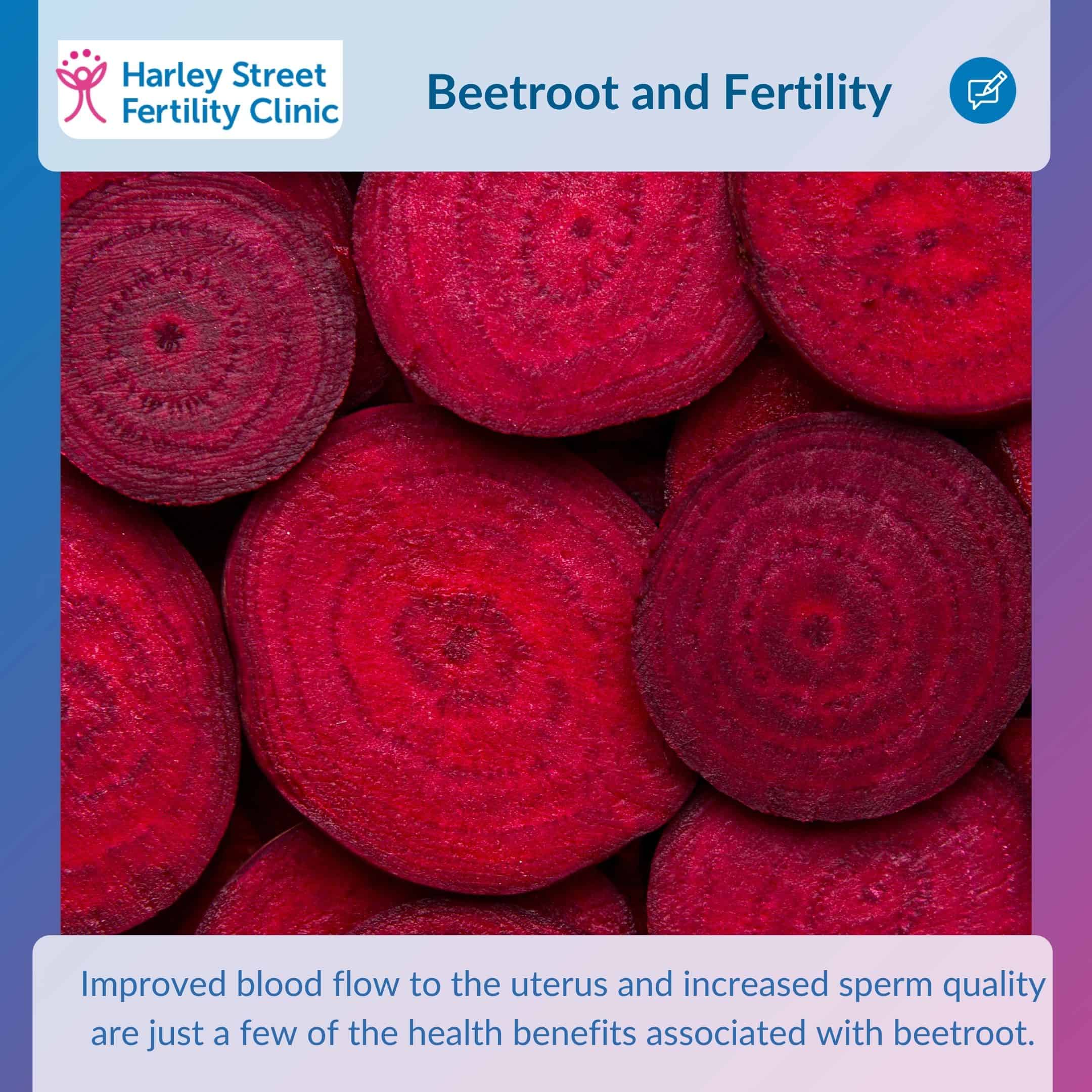
May 11, 2021
(Beet)rooting for fertility
Beetroot (Beta vulgaris) is a root vegetable, with an incredible connection with fertility. It’s packed with essential nutrients, a great source of fiber, folate (vitamin B9), manganese, potassium, iron, and vitamin C. Improved blood flow and lowered blood pressure are just a few of the health benefits associated with beetroot.
Female fertility
A great blood flow to the uterus is essential for a successful pregnancy, and beetroot is just what you need. To thicken the lining of the uterus, beetroot juice is recommended daily, in combination with other superfoods that increase blood flow like pomegranate or berries.
Beetroot contains folate, which can help reduce the risk of miscarriages and might help with embryo implantation. Beetroot is highly recommended during pregnancy to avoid neural tube defects in a growing baby, such as spina bifida.
Male fertility
Poor levels of folate (vitamin B9) are often associated with low sperm count and decreased sperm mobility. The folate, along with other vitamins such as vitamin C and vitamin E, help boost men fertility.
A study published in November 2020, suggests that “beetroot would be very beneficial in improving fertility and maintaining hormonal level during fertility hence it would prove to be very beneficial in maintaining pregnancy as well as treating infertility.”
Beetroot recipes ideas
– Beetroot juice: Fresh beetroot juice, with berries and/or pomegranate make a powerful super-drink.
– Beetroot brownies: Due to their high fibre content, you can also make beetroot brownies using dates instead of sugar.
– Beetroot dips: Mix cooked beetroot with Greek youghurt for an easy and healthy dip.
– In salads. Grated beetroot makes a great and colourful addition to a salad.
Join our webinar on Friday 21st May 2021 to find out more about lifestyle and fertility, including diet. To register, please click here.
References:
https://www.researchgate.net/publication/346016508_Effect_of_different_doses_of_lyophilized_beetroot_on_fertility_and_reproductive_hormones [accessed 10th May 2021]

.jpg?upsize=true&upscale=true&width=400&height=200&name=Ask%20the%20expert%20(6).jpg)
.jpg?upsize=true&upscale=true&width=400&height=200&name=Julie%20(6).jpg)